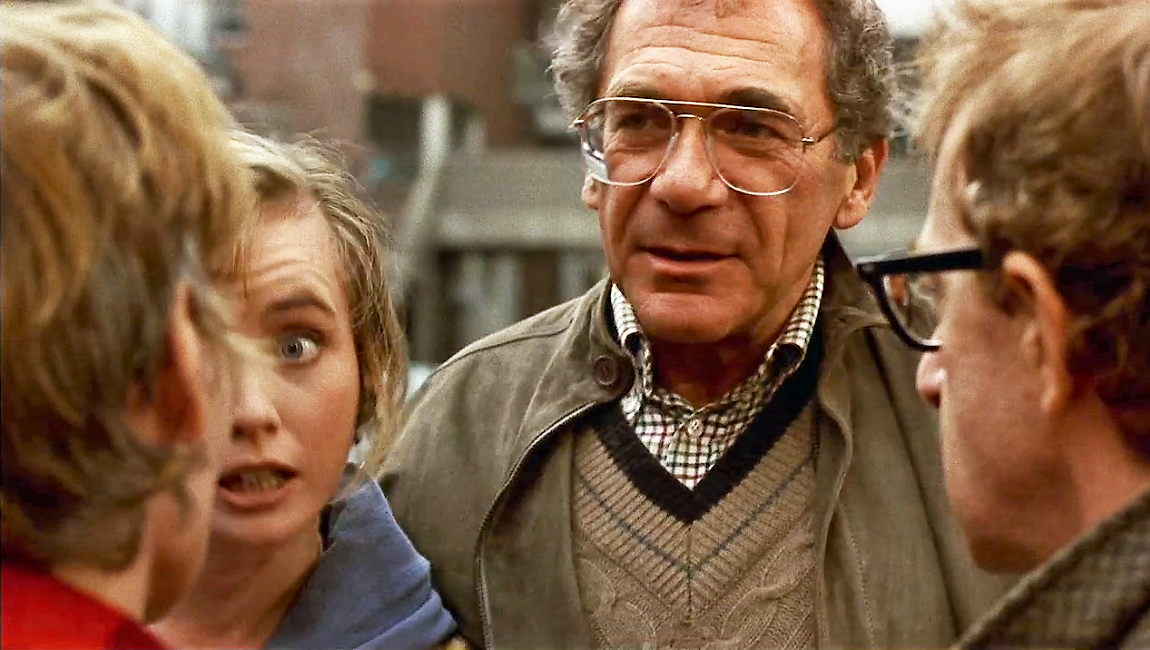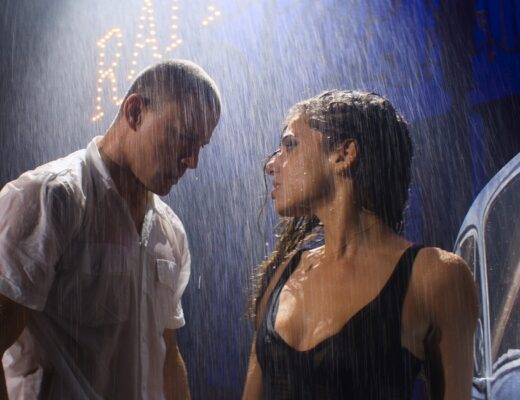To the casual observer, viewing someone else’s relationship from the outside, there often appears to be a sense of unity, cohesion of the somatic and the soul — from two, one. The lovers themselves, though, know something no one else does: they see the frays and the fissures of their bond. To others and to themselves, the couple may refute these failings, may try insisting that things will work out, eventually. After all, no one wants to be just another divorce, another brutal banality. The last film that Woody Allen made with Mia Farrow before their splenetic break-up, 1992’s Husbands and Wives, understands the agony of a relationship in its death throes. The film closed out the artistic apogee of Allen’s career, which started in earnest in 1988 with Another Woman, a work of malaise both indolent and intense, and also includes the Dostoevskian rumination on life and death Crimes and Misdemeanors, as well as Alice, with its bravado camera movements and exquisite staging. (We can forgive Allen for Shadows and Fog and Oedipus Wrecks, unfortunately, both also released in this period.)
Husbands and Wives actually concerns the dissolution of two marriages: Gabe (Allen) and Judy’s (Farrow) and Jack (Sydney Pollack, always a better actor than he was a director) and Sally’s (Judy Davis). The men, lecherous old bastards still unsure of what they want and who can give it to them, seek solace in young women (an altogether unfamiliar subject for Allen, of course), only to realize that misery manifested within cannot be mitigated from without. Crucially, Farrow and Davis have not just been cast as long-suffering wives, nor facile, fainéant heroes; they’re human subjects with their own clear autonomy and afflictions, and arguably even the more interesting characters.
Allen’s film belongs to the same lineage as Richard Yates’s Revolutionary Road, John Updike’s Couples, and James Salter’s Light Years in its depiction of moneyed couples coming apart at the seams. It understands the awesome spectacle of watching the guilt and shame in a fellow creature. Consider the scene when Jack brings his young aerobics trainer girlfriend (Lysette Anthony, three decades Pollack’s junior) to a New York intellectual party, and the look of horror on Jack’s face when she tells the Algonquin Round Table-types about astrology, and the virulence with which Jack drags the girl to the car; consider the literary nymphet (a very appropriately cast Juliette Lewis) with whom Gabe becomes enamored, and how she likens his writing to Nazi propaganda and loses his manuscript. These are men of a certain age who are torn down by a confounding younger generation. On the other side of things, the object of Judy’s ardor, the charming Michael (hot young Liam Neeson), is oblivious to her feelings and doggedly pursues Sally before eventually ending up with Judy. (The incestuous nature of these erudite New Yorkers’ relations is too real.) After their failed attempts at new love, Jack and Sally patch things up (their story isn’t about a relationship’s end, as it turns out, but its stubbornness), while Gabe idles alone with his books and his self-loathing.
Husbands and Wives is the most unsettled of Allen’s films, the most restless, and aptly, his only to favor hand-held camerawork, courtesy of the redoubtable Carlo di Palma — whose long takes possess an unostentatious veracity, prowling apartments the color of dead leaves and Manhattan streets bustling with anonymous, jittery lives. Editor Susan Morse, who cut so many of Allen’s films (before being sadly let go in a penny-pinching move by producer Jean Doumanian) finds, as always, the perfect rhythm for Allen’s writing. (Morse would later collaborate with another favorite of the culture, Louis C. K., whose work is imbued with the same discomforting verisimilitude.) Allen is enthralled by the ties that bind, and the bonds that tie us — the desiccation of passion, after so many years, and the longing to not only be loved but lusted after — and the inextricable relationship between the two. He also knows that, when it’s over, you should go.
Part of Kicking the Canon – The Film Canon.







